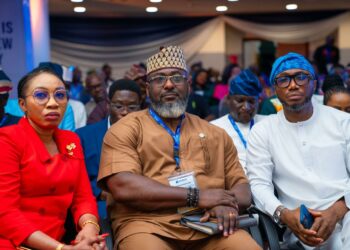Non-fungible tokens (NFTs) have taken the world by storm in recent years, with many people investing in them as a way to own unique digital assets. Unlike fungible tokens such as cryptocurrencies, each NFT is unique and can be used to represent a specific digital asset, such as a piece of artwork, music, or video.
NFTs are powered by blockchain technology, which is a decentralized digital ledger that allows for secure and transparent transactions. Blockchain technology provides a tamper-proof and verifiable record of ownership, which makes it ideal for NFTs. Each NFT is created as a unique token on the blockchain, which allows for the creation of a secure and transparent marketplace for digital assets.
While NFTs have become increasingly popular in countries around the world, Nigeria is also experiencing a rise in interest in this emerging asset class. In this article, we will explore the opportunities, challenges, and future prospects presented by the rise of NFTs in Nigeria.
Opportunities for Nigerian Creators
One of the most significant opportunities presented by NFTs for Nigerian creators is the ability to monetize their digital creations. With NFTs, creators can sell their digital artworks, music, and other digital assets as unique, one-of-a-kind items, creating scarcity and increasing their value. This has the potential to revolutionize the Nigerian creative industry, as creators are no longer limited to selling their work through traditional channels such as galleries, publishers, and record labels.
Another opportunity presented by NFTs for Nigerian creators is the ability to showcase their work to a global audience. The internet has made it easier than ever for creators to share their work with the world, but NFTs take this to a whole new level. By selling their work as NFTs, creators can reach a global audience and potentially sell their work for far more than they would be able to in the local market.
Challenges Faced by Nigerian Creators
Despite the opportunities presented by NFTs, Nigerian creators face several challenges when it comes to accessing the global NFT market. One of the biggest challenges is the lack of infrastructure for minting and selling NFTs. While there are several NFT marketplaces available, many of them are based outside Nigeria, and creators may face issues with payment gateways and other logistical challenges.
Another challenge faced by Nigerian creators is the issue of authenticity. With so many digital assets available online, it can be difficult for buyers to determine whether an NFT is truly unique and authentic. This can lead to disputes over ownership and the value of NFTs, which can be difficult to resolve in the absence of clear regulations and standards.
Future Prospects for NFTs In Nigeria
Despite these challenges, the future prospects for NFTs in Nigeria are bright. As the global NFT market continues to grow, we can expect to see more infrastructure and services developed to support NFT creation and sales in Nigeria. This will make it easier for Nigerian creators to access the global market and sell their work for its true value.
Additionally, as more and more creators adopt NFTs, we can expect to see a greater appreciation of the value of digital art and other digital assets in Nigeria. This has the potential to transform the Nigerian creative industry, creating new opportunities for creators and unlocking the full potential of digital creativity in the country.
In conclusion, the rise of NFTs in Nigeria presents both opportunities and challenges for creators in the country. While there are still several hurdles to overcome, the future prospects for NFTs in Nigeria are bright, and we can expect to see a thriving NFT market emerging in the country in the years to come
Fisayo is senior software engineer who is passionate about the growth of digital technology. He can be reached on fisayo.g.agboola@gmail.com





